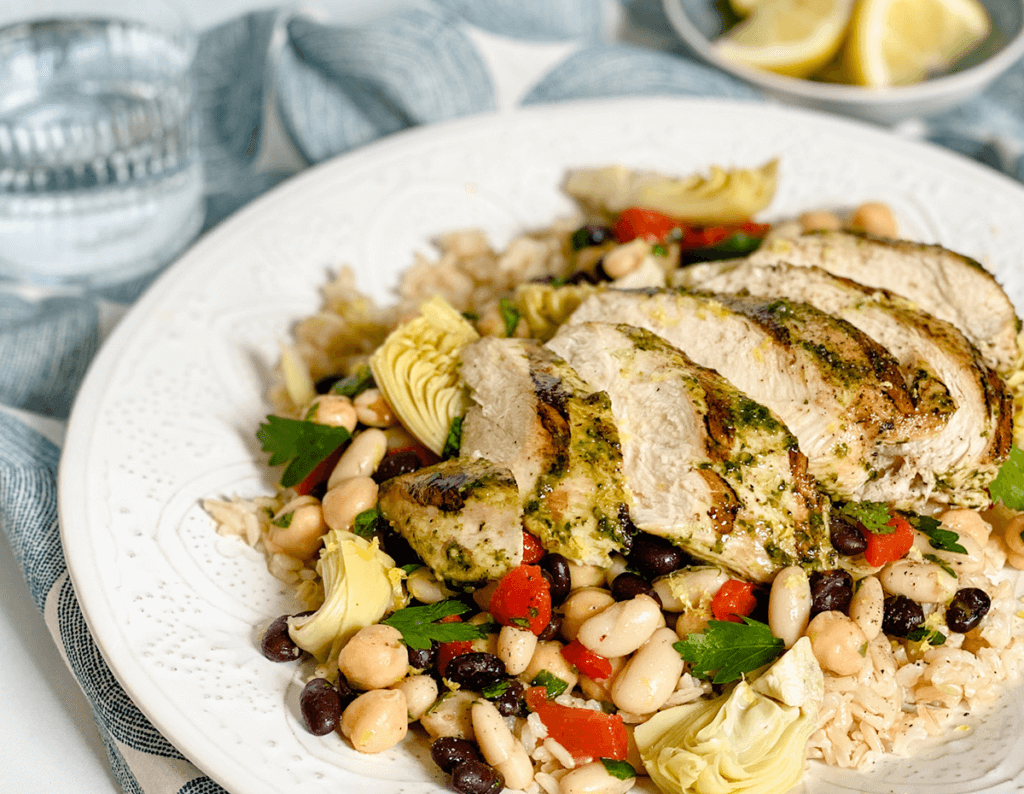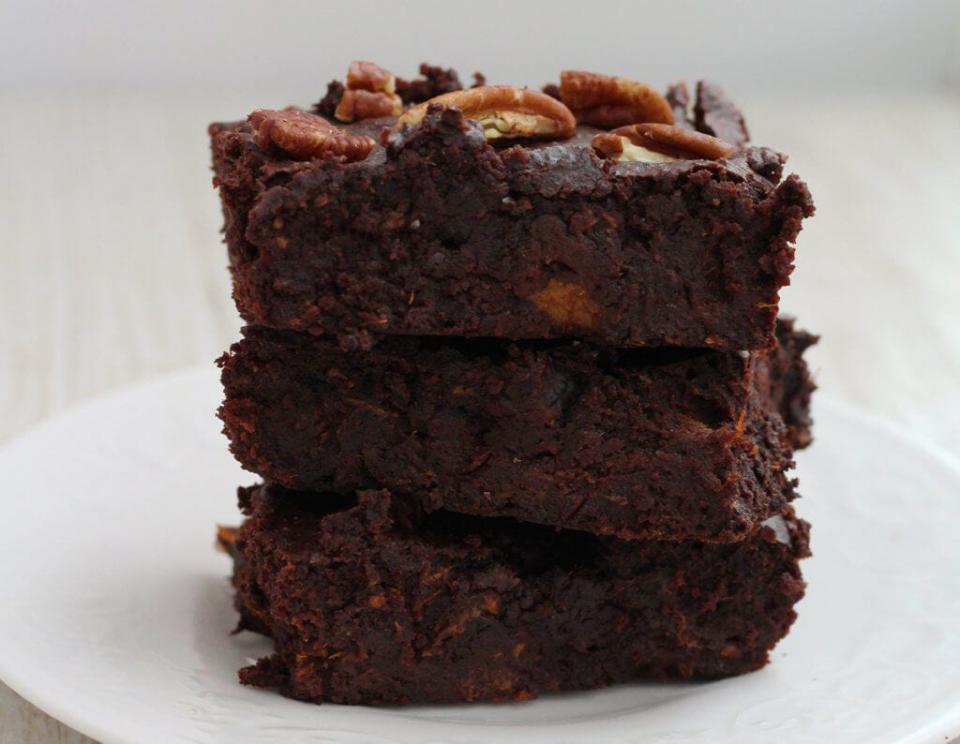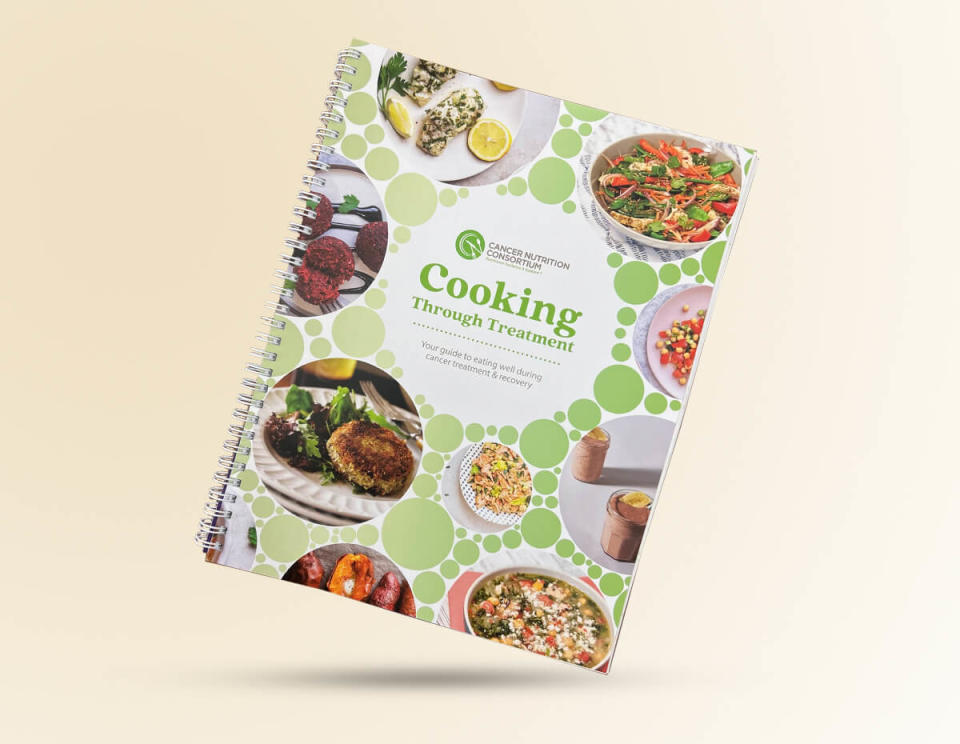Cancer Nutrition Consortium's new cookbook feeds patients' need for healthy meals during treatment

Longtime West Palm Beach internist Dr. Bruce Moscowitz has long believed in following the science when it comes to treating his patients.
That’s especially true for the ones diagnosed with cancer.
Despite years of searching, he couldn’t find adequate data on how nutrition could help cancer patients have better outcomes.
More health matters: 10 tips for holiday good health and good food
Education: Health care on campus part of special program coming to 2 Palm Beach County schools
Food and dining: Best new sandwiches at restaurants in Palm Beach County including burger and lobster roll

So around a decade ago, he did something about it: In collaboration with dietitians from several of the nation’s most-renowned cancer institutes, he and his colleagues created a groundbreaking, two-year, multi-site study on the impact of cancer treatment on the diets and food preferences of patients who were undergoing treatment.
The study — which was published in 2015 and examined how cancer treatment altered taste, flavor and overall nutrition — was the catalyst for the founding of a new nonprofit resource for all cancer patients: the Cancer Nutrition Consortium.
“The whole key to the Cancer Nutrition Consortium is a scientific approach to maintaining one’s nutrition at any stage in the unfortunate diagnosis of cancer — whether you’re just diagnosed, undergoing treatment, or a survivor — because the issues persist into survivorship,” Moskowitz said.
“Our findings were groundbreaking because no one had ever done science-based research on the issues, which directly relate to the issues of malnutrition in cancer patients. We’ve taken the science and built a basis of support for patients in treatment who want resources to eat as well as possible.”
Just in time for the holidays, the Cancer Nutrition Consortium has published a cookbook titled “Cooking Through Treatment: Your Guide to Eating Well During Cancer Treatment & Recovery” that is available for $24.95 on cancernutrition.org.
Strict evidence-based guidelines
Seven institutions participated in the Cancer Nutrition Consortium’s study:
Mayo Clinic Cancer Center
Dana Farber/Brigham and Women’s Cancer Center
New York University Clinical Cancer Center
University of Chicago Comprehensive Cancer Center
Sidney Kimmel Comprehensive Cancer Center at Johns Hopkins
Cedars-Sinai/Samuel Oschin Comprehensive Cancer Institute
Roswell Park Cancer Institute
Among the factors studied:
Type of cancer and type of treatments.
Eating and drinking preferences, usage of supplements, activity levels and what precludes them from having healthy diets.
A list of beverages and food dishes that appeal to them during treatment.
Preference differences, if any, by type of cancer patient, demographics or behaviors.
“We found that eight out of 10 patients avoided some types of foods, with 47% avoiding foods that they used to eat due to medical advice and 57% due to intolerance,” noted Moscowitz.
Not surprisingly, those who avoided certain foods also experienced decreased energy and unintentional weight loss.
Once the research was completed, the Cancer Nutrition Consortium enlisted the talents of certified master chefs and other culinary experts to create recipes that fit the following criteria:
Recipes for soups, salads, entrees, shakes, sides and desserts needed to be easy to prepare, and soups, salads and entrees needed to have more than 10 grams of protein per serving with a "high nutrient content." Each serving would be made to maximize calories by using healthy fats (such as olive oil, canola oil and/or nuts) and ideally contain at least 200 calories per serving.
Sides should include nutrient-dense vegetables, grains and pastas that maximize calories and consist of at least 100 calories per serving.
Shakes should include at least 20 grams of protein and 200 calories and desserts should have at least 200 calories per serving but limit the amount of added sugars.
“We gave our chefs strict guidelines as to caloric, protein, sugar, and sodium intake per serving and then the recipes were tested by our nutritionists to ensure they meet our standards,” Moscowitz said.

The result was dozens upon dozens of delicious, easy-to-prepare recipes that are available on the Cancer Nutrition Consortium website (cancernutrition.org) and in the organization’s new cookbook.
Additional cancer support
In addition to providing recipes for cancer patients and their caregivers, the book also shares experts' advice on everything from optimizing nutrition before surgery, to managing nausea during chemotherapy treatment, to understanding how one’s digestion will be affected by treatment.
For instance, to maintain one’s weight and energy when dealing with treatment-related diarrhea, recommendations on the website include “eating frequent small meals throughout the day” and consuming easy-to-digest “foods like bananas, applesauce, yogurt, baked potato, noodles, white rice and bread."
The book explains that bananas and potatoes are important because they are high in potassium, which is often lost with diarrhea. It’s also recommended to eat “foods containing salt such as saltines, broths, and pretzels to help retain lost sodium.”
Family caregivers are also a vital resource for cancer patients, so Dana Farber Cancer Institute oncology dietitian and nutritionist Liz Puris recommends being in constant communication with your loved one about “what is working best for them in terms of diet, symptoms, and nutrition.”
In addition, try to stay ahead of any nausea and digestive side effects from treatment “by taking medications preventively.”
And if you accompany your loved one to their medical appointments, “take notes and then organize paperwork into a binder or folders. If there are multiple caregivers, consider starting a shareable electronic document so you can all share notes and provide consistent care.”
To learn more about the Cancer Nutrition Consortium or to purchase the cookbook, visit cancernutrition.org.

This article originally appeared on Palm Beach Post: Cancer Nutrition Consortium's new cookbook caters to patient tastes, needs

